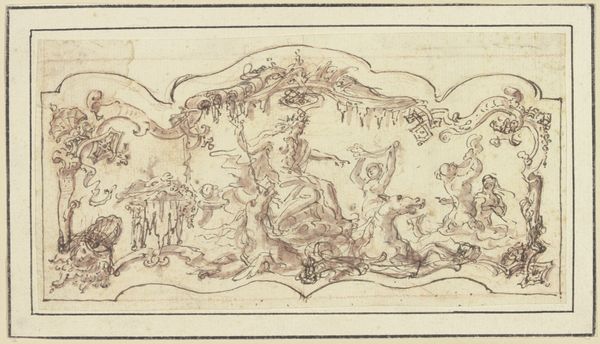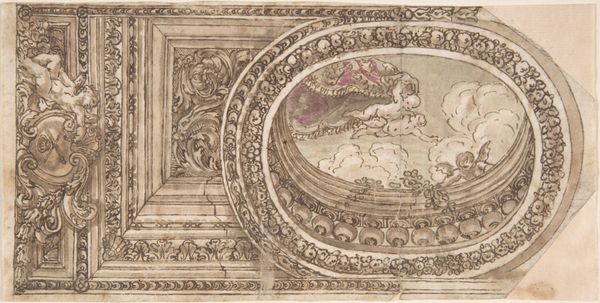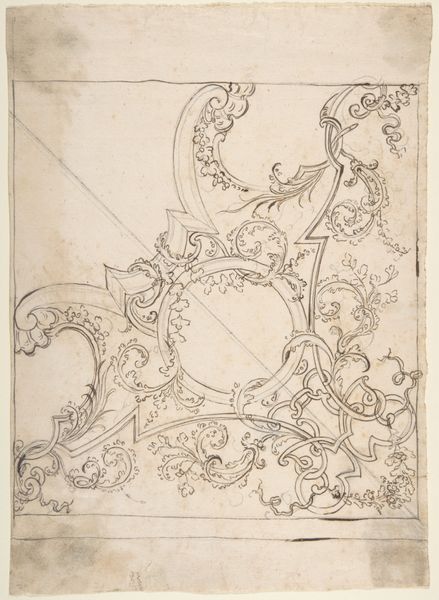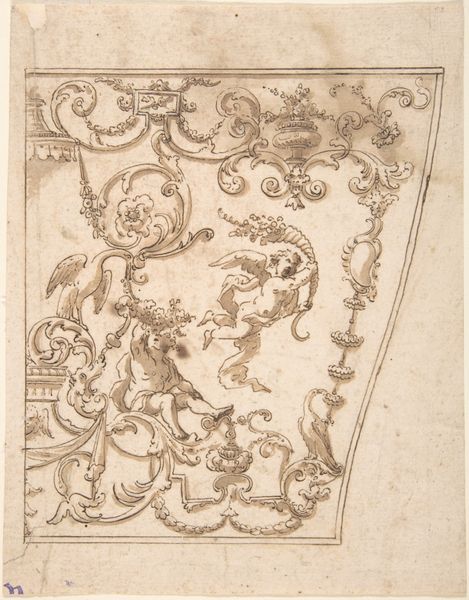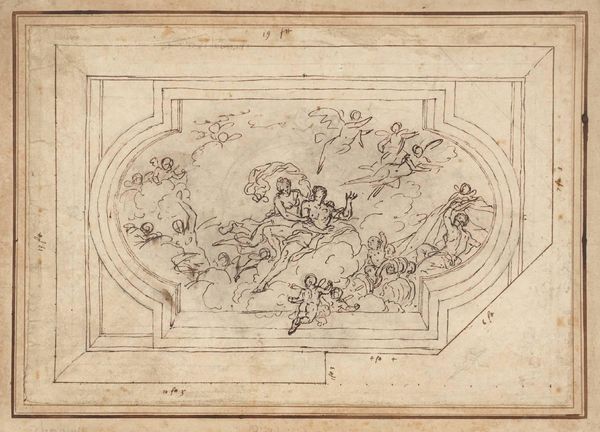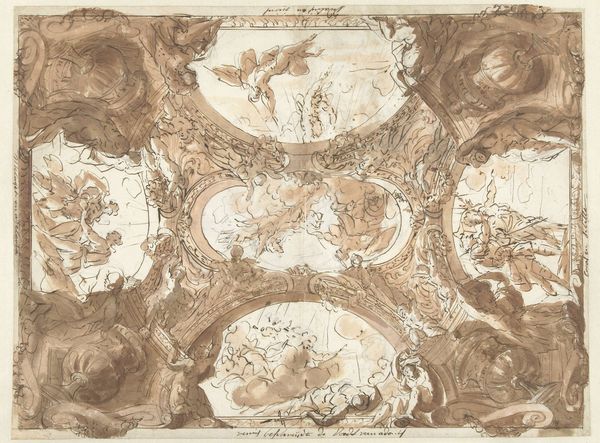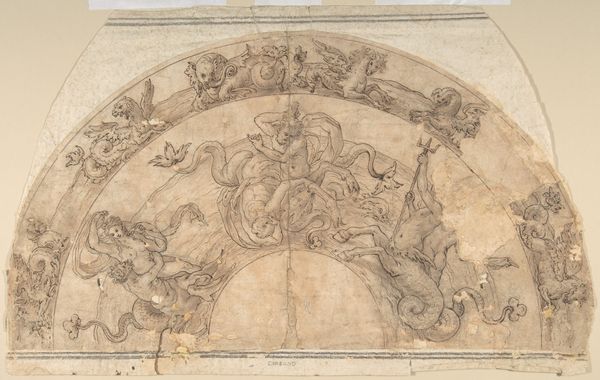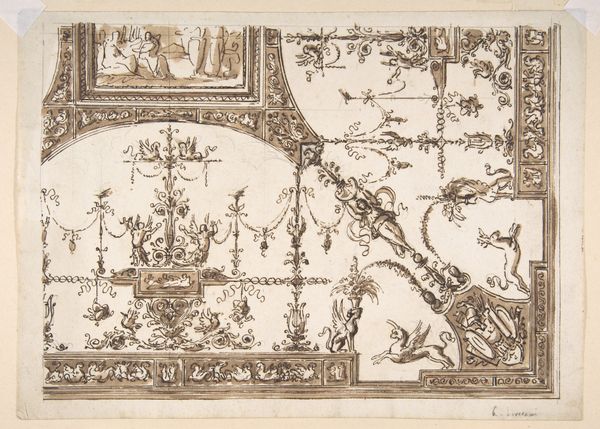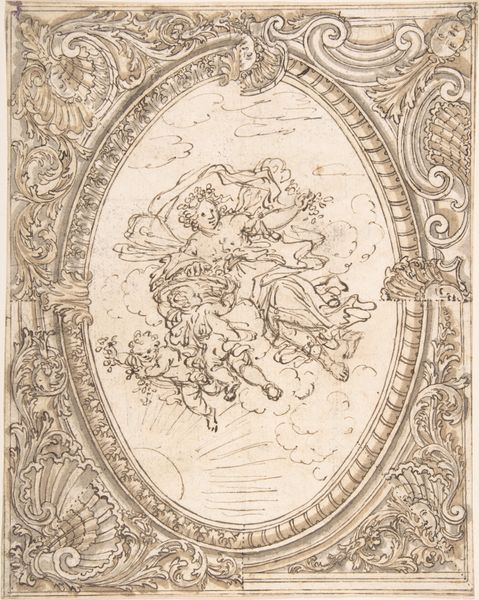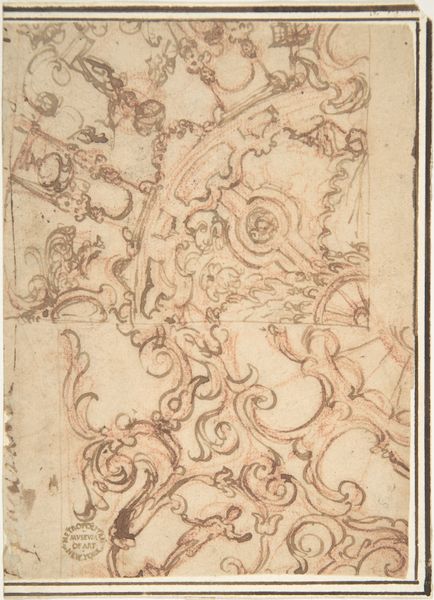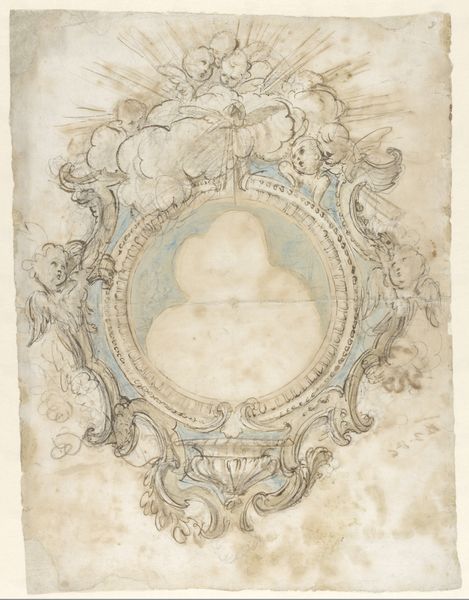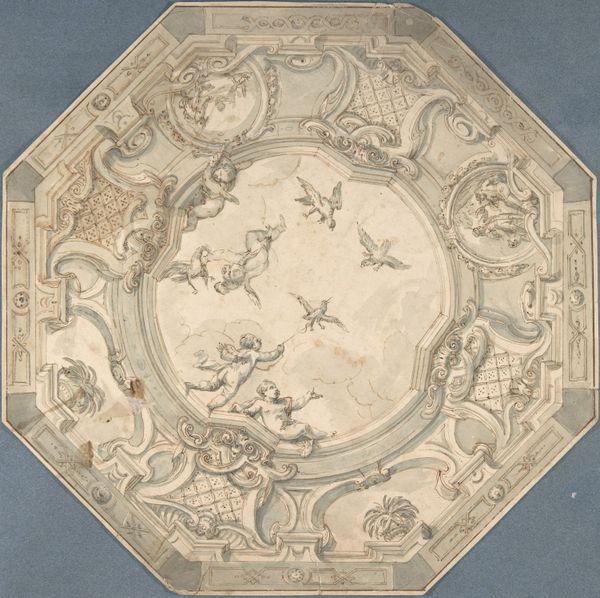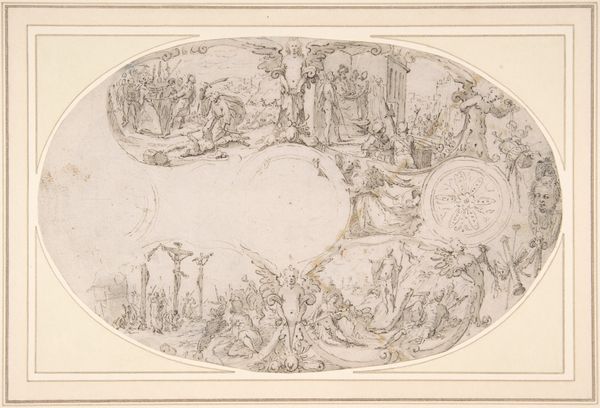
drawing, red-chalk, ink, indian-ink, pencil
#
drawing
#
toned paper
#
allegory
#
baroque
#
red-chalk
#
figuration
#
ink
#
german
#
cupid
#
indian-ink
#
pencil
#
15_18th-century
#
history-painting
#
watercolor
Copyright: Public Domain
Curator: Hmm, well, right off the bat, I get a feeling of restrained sensuality from this drawing. A playful eroticism, if such a thing exists! Editor: Here we have a piece titled *Kartusche mit Venus und Amor* by Georg Melchior Kraus. This work on toned paper features red chalk, pencil, and ink, and it resides here at the Städel Museum. Curator: "Kartusche"...it feels so meticulously architectural, yet softens around that central oval. A peek into Baroque wallpaper, maybe? Like a spicy daydream trying to sneak into the palace! Editor: Precisely! Kraus was working within established conventions, presenting mythological themes—Venus and Cupid, love and beauty, encased within that very architectural cartouche. The Baroque was often about power, expressed through ornamentation. Drawings like this suggest both the grandeur *and* the labor involved in visualizing that power. Curator: Power...right. It's funny, though. The sketchiness, the *almost* unfinished quality makes me think of someone stealing a glimpse behind the scenes, the "power" as it's being built, imagined. The raw desire under the powdered wigs. Editor: The drawing indeed presents an interesting dichotomy. The overt allegory certainly catered to specific cultural expectations, but then again, the choice of medium opens this up. Ink, pencil, red chalk - all allow Kraus a directness, an immediacy, that challenges those formal boundaries. He seems to almost liberate Venus and Amor. Curator: Yes! Freed by the very materials... Maybe it's about how even within constraints— societal, artistic, architectural—something tender and human can still, maybe must, sprout. Like little naughty cupids with charcoal wings... Editor: It definitely reveals that tension between expectation and intimacy, particularly interesting as Kraus worked within the context of late 18th-century German Classicism and early Romanticism. I’d say Kraus' work occupies a very curious position within art history because of this. Curator: Leaving us, perhaps, in a state of… delicious, historical suspense. Editor: Precisely. It's always about digging a bit deeper, isn’t it?
Comments
No comments
Be the first to comment and join the conversation on the ultimate creative platform.
